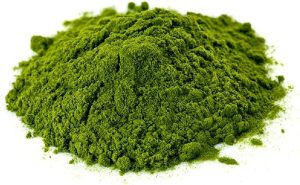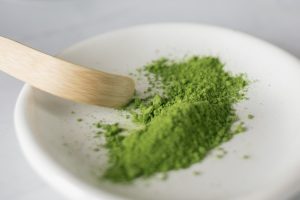
- Overview of Vitamin B5, a.k.a Pantothenic Acid
- Brief History of Vitamin B5, a.k.a Pantothenic Acid
- Functions of Vitamin B5, a.k.a Pantothenic Acid
- Recommended Daily Intake (RDI), Recommended Dietary Allowance (RDA), Adequate Intake (AI) or Reference Nutrient Intake (RNI) for Vitamin B5, a.k.a Pantothenic Acid
- Deficiency of Vitamin B5, a.k.a Pantothenic Acid
- Food Sources of Vitamin B5, a.k.a Pantothenic Acid and Where to Get It From
- Vitamin B5, a.k.a Pantothenic Acid and Its Interaction with Other Medications
- Websites and Articles to Delve into the Benefits of Vitamin B5, a.k.a Pantothenic Acid
- Disclaimer
Overview of Vitamin B5, a.k.a Pantothenic Acid
Vitamin B5, also known as pantothenic acid, is a water-soluble vitamin essential for various physiological functions in the body. It plays a crucial role in the synthesis of coenzyme A, a key molecule involved in the metabolism of carbohydrates, fats, and proteins. Additionally, vitamin B5 is integral to the production of acetylcholine, a neurotransmitter vital for proper nerve function.
This vitamin is widely distributed in both plant and animal foods, with sources including meat, dairy products, legumes, and whole grains. The body requires a continuous supply of vitamin B5, as it is not stored in large amounts. A deficiency in this vitamin can lead to symptoms such as fatigue, insomnia, and digestive issues.
Beyond its role in energy metabolism, vitamin B5 is also involved in the synthesis of hormones and cholesterol. Moreover, it contributes to the maintenance of healthy skin by promoting the formation of skin cells and assisting in wound healing. Adequate intake of vitamin B5 is crucial for overall health and well-being.
Brief History of Vitamin B5, a.k.a Pantothenic Acid
Vitamin B5, also known as pantothenic acid, has a rich history rooted in the discovery of essential nutrients. The term “pantothenic acid” is derived from the Greek word “pantos,” meaning everywhere, emphasizing its widespread presence in various foods.
The discovery of pantothenic acid is credited to American biochemist Roger J. Williams in the early 20th century. In the 1930s, Williams isolated a substance from rice bran and identified it as the essential factor preventing a deficiency disease in laboratory animals. He named it pantothenic acid due to its ubiquity in diverse food sources.
In 1933, another scientist, Elmer V. McCollum, conducted further research, confirming the presence of a substance in liver and yeast that could prevent a nutritional disorder similar to a deficiency of pantothenic acid. This substantiated the importance of the vitamin in various foods.
By the mid-20th century, scientists had elucidated the role of pantothenic acid as a vital component of coenzyme A, a coenzyme involved in numerous metabolic processes, including energy production from carbohydrates, fats, and proteins.
Today, vitamin B5 is recognized as an essential nutrient critical for energy metabolism, neurotransmitter synthesis, and overall cellular function. Its history reflects the collaborative efforts of scientists in uncovering the significance of this vitamin in maintaining health and preventing deficiency-related diseases.
Functions of Vitamin B5, a.k.a Pantothenic Acid
Vitamin B5, or pantothenic acid, serves several important functions in the body:
- Energy Metabolism:
- Vitamin B5 is a crucial component of coenzyme A (CoA), which is involved in the breakdown of carbohydrates, fats, and proteins for energy production. CoA is a key player in the citric acid cycle, a central pathway in cellular respiration.
- Synthesis of Fatty Acids:
- Coenzyme A, formed with the help of vitamin B5, is essential for the synthesis of fatty acids. This process is vital for the production of lipids, which are crucial for cell structure and function.
- Neurotransmitter Synthesis:
- Vitamin B5 contributes to the synthesis of acetylcholine, an important neurotransmitter involved in nerve signal transmission. Proper functioning of the nervous system relies on an adequate supply of acetylcholine.
- Hormone Synthesis:
- Pantothenic acid is involved in the synthesis of steroid hormones, including cortisol, testosterone, and estrogen. These hormones play critical roles in various physiological processes, including stress response and reproduction.
- Skin Health:
- Vitamin B5 is associated with the maintenance of healthy skin. It is involved in the production of skin cells and can contribute to wound healing. In skincare products, dexpanthenol, a derivative of pantothenic acid, is often used for its moisturizing and anti-inflammatory properties.
- Cholesterol Synthesis:
- Coenzyme A, formed with the assistance of vitamin B5, is also involved in the synthesis of cholesterol. While excessive cholesterol can be harmful, a balanced level is essential for various cellular functions.
- Immune System Support:
- Pantothenic acid plays a role in the immune system, although the exact mechanisms are not fully understood. It may contribute to the production of antibodies and white blood cells, which are crucial components of the immune response.
Overall, vitamin B5 is indispensable for numerous biochemical pathways, and its adequate intake is vital for maintaining optimal health and supporting various physiological functions in the body.
Recommended Daily Intake (RDI), Recommended Dietary Allowance (RDA), Adequate Intake (AI) or Reference Nutrient Intake (RNI) for Vitamin B5, a.k.a Pantothenic Acid
Vitamin B5, or pantothenic acid, does not have a specific Recommended Dietary Allowance (RDA) established by organizations like the U.S. National Academy of Medicine. Instead, the recommended intake is often expressed as an Adequate Intake (AI), which represents an estimate based on observed or experimentally determined approximations of nutrient intake by a group of healthy people.
The AI for vitamin B5 in adults is typically around 5 mg per day. Pregnant and breastfeeding women may require slightly higher amounts. It’s important to note that these values can vary depending on factors such as age, sex, and individual health conditions.
Vitamin B5 is found in a variety of foods, so a balanced and varied diet that includes sources like meat, dairy products, whole grains, legumes, and vegetables is generally sufficient to meet the recommended intake. Deficiency is rare, as this vitamin is widespread in many food sources. If someone has concerns about their vitamin B5 intake, it is advisable to consult with a healthcare professional or a registered dietitian for personalized advice.
Deficiency of Vitamin B5, a.k.a Pantothenic Acid
A deficiency of vitamin B5, also known as pantothenic acid deficiency, is relatively rare because this vitamin is found in a wide variety of foods, and the body requires it in small amounts. However, when a deficiency does occur, it can lead to a range of symptoms affecting various bodily functions. Some potential signs and symptoms of vitamin B5 deficiency include:
- Fatigue:
- Pantothenic acid is crucial for energy metabolism, and a deficiency may result in increased fatigue and a lack of energy.
- Irritability:
- Vitamin B5 is involved in the synthesis of neurotransmitters, including acetylcholine, which plays a role in mood regulation. A deficiency may contribute to irritability and mood disturbances.
- Insomnia:
- Some individuals with a deficiency in vitamin B5 may experience difficulty sleeping or insomnia.
- Gastrointestinal Distress:
- Deficiency can lead to digestive issues such as abdominal pain, cramps, and constipation.
- Numbness and Tingling:
- Pantothenic acid is involved in nerve function, and a deficiency may lead to symptoms like numbness and tingling in the extremities.
- Muscle Cramps:
- Insufficient levels of vitamin B5 may contribute to muscle cramps and weakness.
It’s important to note that severe vitamin B5 deficiency is uncommon, as this vitamin is widely distributed in various foods. Additionally, the body can store small amounts of vitamin B5 in tissues. Deficiency is more likely to occur in individuals with certain health conditions, such as malabsorption disorders, and those with extremely restricted diets.
If someone suspects they have a vitamin B5 deficiency or is experiencing symptoms, they should consult with a healthcare professional. A healthcare provider can conduct tests to diagnose the deficiency and recommend appropriate interventions, which may include dietary changes or supplementation.
Food Sources of Vitamin B5, a.k.a Pantothenic Acid and Where to Get It From
Vitamin B5, also known as pantothenic acid, is found in a variety of foods, both plant and animal-based. Including these sources in your diet can help ensure an adequate intake of vitamin B5. Here are some common food sources:
- Meat:
- Beef, chicken, turkey, and pork are good sources of vitamin B5. Organ meats such as liver also contain high levels.
- Fish:
- Fish like salmon, trout, and tuna provide significant amounts of vitamin B5.
- Dairy Products:
- Milk, cheese, and yogurt contain vitamin B5. Cottage cheese and other dairy products can contribute to your daily intake.
- Eggs:
- Eggs, especially the yolk, contain vitamin B5.
- Whole Grains:
- Whole grains like brown rice, whole wheat, and oats are good sources of vitamin B5.
- Legumes:
- Lentils, chickpeas, and split peas contain vitamin B5. These are especially important for individuals following vegetarian or vegan diets.
- Nuts and Seeds:
- Sunflower seeds, peanuts, and almonds are examples of nuts and seeds that provide vitamin B5.
- Vegetables:
- Some vegetables contain smaller amounts of vitamin B5. Examples include mushrooms, broccoli, and sweet potatoes.
- Avocado:
- Avocado is a fruit that contains vitamin B5.
- Fortified Foods:
- Some processed foods, such as breakfast cereals, may be fortified with vitamin B5.
Maintaining a balanced and varied diet that includes a mix of these food sources can help ensure that you get an adequate intake of vitamin B5. If you have specific dietary restrictions or concerns about your nutrient intake, consider consulting with a healthcare professional or a registered dietitian for personalized advice.
Vitamin B5, a.k.a Pantothenic Acid and Its Interaction with Other Medications
Vitamin B5, or pantothenic acid, is generally considered safe and does not typically interact significantly with medications. It’s a water-soluble vitamin, and excess amounts are usually excreted in urine rather than stored in the body. However, as with any supplement or medication, it’s important to be aware of potential interactions. Here are some considerations:
- Biotin Supplementation:
- Biotin, another B-vitamin, and pantothenic acid share a similar structure, and high doses of biotin supplements could interfere with laboratory tests that measure pantothenic acid levels. If you are taking biotin supplements and need a pantothenic acid measurement, it’s advisable to inform your healthcare provider.
- Medications for Acne:
- Some medications used to treat acne, such as isotretinoin, may reduce the absorption of vitamin B5. However, this interaction is not well-established, and more research is needed to understand the extent of its impact.
- Coenzyme Q10 (CoQ10) and L-Carnitine Supplements:
- These supplements may interact with pantothenic acid. CoQ10 and L-carnitine are involved in energy metabolism, and there is a theoretical concern that they might compete for similar biological functions. However, the clinical significance of this interaction is not well-established.
Always consult with your healthcare provider, especially if you are considering taking vitamin B5 supplements or any other vitamins, minerals, or herbal products alongside prescription medications. They can provide personalized advice based on your specific health status, medications, and individual needs.
It’s important to note that a well-balanced diet rich in a variety of foods generally provides sufficient vitamin B5 for most people, and supplementation is often unnecessary unless advised by a healthcare professional due to a deficiency or specific health condition.
Websites and Articles to Delve into the Benefits of Vitamin B5, a.k.a Pantothenic Acid
Here’s a brief summary of information about Vitamin B5 (Pantothenic Acid) from some reputable websites:
- Holland & Barrett:
- The article discusses the benefits of Vitamin B5, including its role in energy metabolism and the maintenance of skin health.
- Dr. Axe:
- The page covers the functions of Vitamin B5 in the body, emphasizing its crucial role in the synthesis of coenzyme A (CoA) and fatty acids.
- Verywell Health:
- The article explores the benefits of pantothenic acid, such as supporting energy production, promoting skin health, and aiding in wound healing.
- La Roche-Posay:
- The blog post discusses the importance of Vitamin B5 for skin health and its role in maintaining a healthy skin barrier..
- Harvard T.H. Chan School of Public Health:
- The page from Harvard’s Nutrition Source briefly covers the functions of Vitamin B5 in the body, emphasizing its role in energy metabolism and CoA synthesis.
- WebMD:
- The WebMD page provides an overview of pantothenic acid, including its uses, potential side effects, and precautions.
- Medical News Today:
- The article explores the functions of Vitamin B5, its sources, and potential health benefits.
- Mount Sinai:
- The page from Mount Sinai’s Health Library provides information on pantothenic acid, emphasizing its role in the metabolism of proteins, carbohydrates, and fats.
- Healthline:
- The Healthline article covers various aspects of Vitamin B5, including its functions, benefits, dietary sources, and potential side effects.
These summaries provide a general overview of the information available on each website. For more detailed information, you may want to visit the respective websites directly.
Disclaimer
The information is solely provided for educational purposes. It is not intended to diagnose, treat, cure, or prevent any disease. Seek the advice of your physician or qualified healthcare provider with any questions you may have regarding a medical condition at all times. Never disregard professional medical advice because of something you have read or learned from this article.






